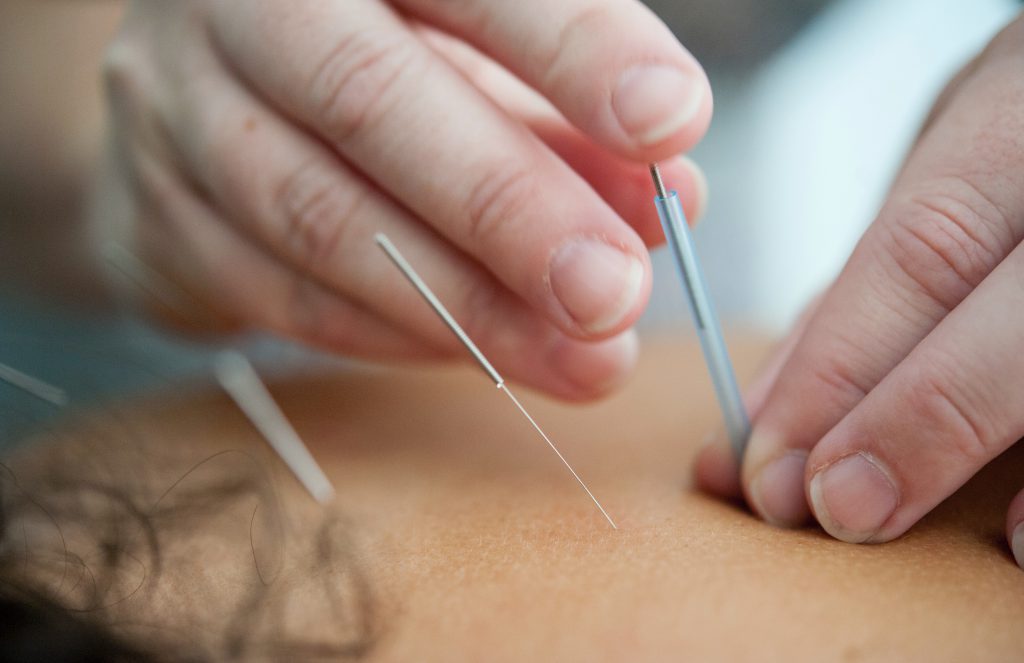In recent years there has been an increased practice of what has been termed “dry needling” by physiotherapists, osteopaths, doctors and members of other similar professions dealing with musculo-skeletal conditions. Dry needling is in fact part of acupuncture practice. Practitioners use the term Dry Needling because you can’t call yourself an Acupuncturist unless you have studied a minimum of 4 years in Chinese Medicine, including hundreds of hours of safe needle handling and aspect technique.
An acupuncturist’s education is typically 5 didactic years or 3000 hours of training. Training must including at least 450 hours of training in Western sciences (anatomy, physiology, microbiology, biochemistry, pathology, western clinical sciences, hygiene and cardio-pulmonary resuscitation) and a minimum of 750 hours of acupuncture study (fundamental principles, diagnosis, pathology, therapeutics, meridians and points, and acupuncture technique including electro-acupuncture). Clinical training must include a minimum of 150 hours of clinical observation and 720 hours of supervised practice. Acupuncturists must have applied over 400 treatments on at least 100 patients over the course of more than one year of their schooling. Board exams are administered by the NCCAOM in order to obtain licensure.

Unfortunately those practicing dry needling don’t require anywhere near the amount of training as acupuncturist. For example, in Virginia a physical therapist only needs 54 hours of training to practice dry needling. There is such a difference in qualification in fact, that the American Medical Association has issued a statement warning against dry needling by non-acupuncture trained professionals. Dry Needling is predominantly comprised of an acupuncture technique referred to as “ashi” points, which is basically inserting needles into the site of pain. While this may be effective in temporarily relieving pain it is only a piece of the puzzle and is in no way addressing the root cause of the condition. With dry needling there is no training or understanding of an entire complex philosophy of medicine that has been used successfully for over 3000 years. Dry needling is basically a very watered down version of acupuncture by poorly trained practitioners. It is therefore highly recommended to avoid dry needling and seek out a licensed acupuncturist instead for best results and maximum safety.